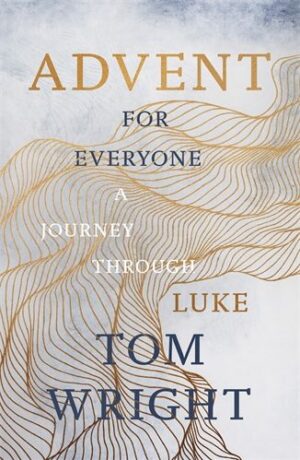



The Birth of Jesus: Luke 2.1–20
At that time a decree was issued by Augustus Caesar: a cen- sus was to be taken of the whole world. 2(This was the first census, before the one when Quirinius was governor of Syria.) 3 So everyone set off to be registered, each to their own town. 4 Joseph too, who belonged to the house and family of David, went from the city of Nazareth in Galilee to Bethlehem in Judaea, David’s city, 5to be registered with his fiancée Mary, who was pregnant. 6 So that’s where they were when the time came for her to give birth; 7and she gave birth to her firstborn, a son. She wrapped him up and put him to rest in a feeding-trough, because there was no room for them in the normal living quarters. There were shepherds in that region, out in the open, keeping a night watch around their flock. 9An angel of the Lord stood in front of them. The glory of the Lord shone around them, and they were terrified. ‘Don’t be afraid,’ the angel said to them. ‘Look: I’ve got good news for you, news which will make everybody very happy. 11Today a saviour has been born for you – the Messiah, the Lord! – in David’s town. 12This will be the sign for you: you’ll find the baby wrapped up, and lying in a feeding-trough.’ 13 Suddenly, with the angel, there was a crowd of the heavenly armies. They were praising God, saying, ‘Glory to God in the highest, and peace upon earth among those in his favour.’ So when the angels had gone away again into heaven, the shepherds said to each other, ‘Well then; let’s go to Bethlehem and see what it’s all about, all this that the Lord has told us.’ 16 So they hurried off, and found Mary and Joseph, and the child lying in the feeding-trough. 17When they saw it, they told them what had been said to them about this child. 18And all the people who heard it were amazed at the things the shepherds said to them. 19But Mary treasured all these things and mused over them in her heart. 20 The shepherds returned, glorifying and praising God for all they had heard and seen, as it had been told to them.
If you try to point out something to a dog, the dog will often look at your finger instead of at the object you’re trying to point to. This is frustrating, but it illustrates a natural mistake we all make from time to time.
It’s the mistake many people make when reading the Christmas story in Luke’s gospel. What do people know about Jesus’ birth? The manger – the Christmas crib. The most famous animal feeding-trough in all history. You see it on Christmas cards. Churches make elaborate ‘cribs’, and sometimes encourage people to say their prayers in front of them. We know about the animals too, not that Luke even mentions any; the ox and the ass feature prom- inently in Christmas cards and carols, though there is no indication here either that the shepherds brought their own animals with them, or that there were any in the place where Mary and Joseph were staying.
Let’s be clear about where they were lodging. Tradition has them knocking at an inn door, being told there was no room, and then being offered the stable along with the animals. But the word for ‘inn’ in the traditional translations has several meanings, and it’s likely that they were, in fact, on the ground floor of a house where people normally stayed upstairs. The ground floor would often be used for animals – hence the manger or feeding-trough, which came in handy for the baby – but there is nothing to say that there were actually animals there at the time.
To concentrate on the manger and to forget why it was mentioned in the first place is like the dog looking at the finger rather than the object. Why has Luke mentioned it three times in this story?
The answer is: because it was the feeding-trough, appropriately enough, which was the sign to the shep- herds. It told them which baby they were looking for. And it showed them that the angel knew what he was talking about. To be sure, it’s another wonderful human touch in the story, to think of the young mother finding an animal’s feeding-trough ready to hand as a cot for her newborn son. No doubt there are many sermons waiting to be preached here about God coming down into the mess and muddle of real life. But the reason Luke has mentioned it is because it’s important in giving the shepherds their news and their instructions.
Why is that significant? Because it was the shepherds who were told who this child was. This child is the sa- viour, the Messiah, the Lord. The manger isn’t important in itself. It’s a signpost, a pointing finger, to the identity and task of the baby boy who’s lying in it. The shepherds, summoned in from the fields, are made privy to the news, so that Mary and Joseph, hearing it from this unexpected source, will have extra confirmation of what up until now has been their own secret.
We have to assume that the shepherds, like other Palestinian Jews at the time, would have known what a saviour, a Messiah, a Lord was to do. In case we need reminding, Luke has introduced the story by telling us about Augustus Caesar, way off in Rome, at the height of his power.
Augustus was the adopted son of Julius Caesar. He became sole ruler of the Roman world after a bloody civil war in which he overpowered all rival claimants. The last to be destroyed was the famous Mark Antony, who committed suicide not long after his defeat at the battle of Actium in 31 bc. Augustus turned the great Roman republic into an empire, with himself at the head; he proclaimed that he had brought justice and peace to the whole world; and, declaring his dead adoptive father to be divine, styled himself as ‘son of god’. Poets wrote songs about the new era that had begun; historians told the long story of Rome’s rise to greatness, reaching its climax (obviously) with Augustus himself. Augustus, people said, was the ‘saviour’ of the world. He was its king, its ‘lord’. Increasingly, in the eastern part of his empire, people wor- shipped him too, as a god.
Meanwhile, far away, on that same eastern frontier, a boy was born who would within a generation be hailed as ‘son of God’; whose followers would speak of him as ‘saviour’ and ‘lord’; whose arrival, they thought, had brought true justice and peace to the world. Jesus never stood before a Roman emperor, but at the climax of Luke’s gospel he stood before his representative, the governor Pontius Pilate. Luke certainly has that scene in mind as he tells his tale: how the emperor in Rome decides to take a census of his whole wide domain, and how this census brings Jesus to be born in the town which was linked to King David himself.
The point Luke is making is clear. The birth of this little boy is the beginning of a confrontation between the kingdom of God – in all its apparent weakness, insignificance and vulnerability – and the kingdoms of the world. Augustus never heard of Jesus of Nazareth. But within a century or so his successors in Rome had not only heard of him; they were taking steps to obliterate his followers. Within just over three centuries the emperor himself became a Christian. When you see the manger on a card, or in church, don’t stop at the crib. See what it’s pointing to. It is pointing to the explosive truth that the baby lying there is already being spoken of as the true king of the world.